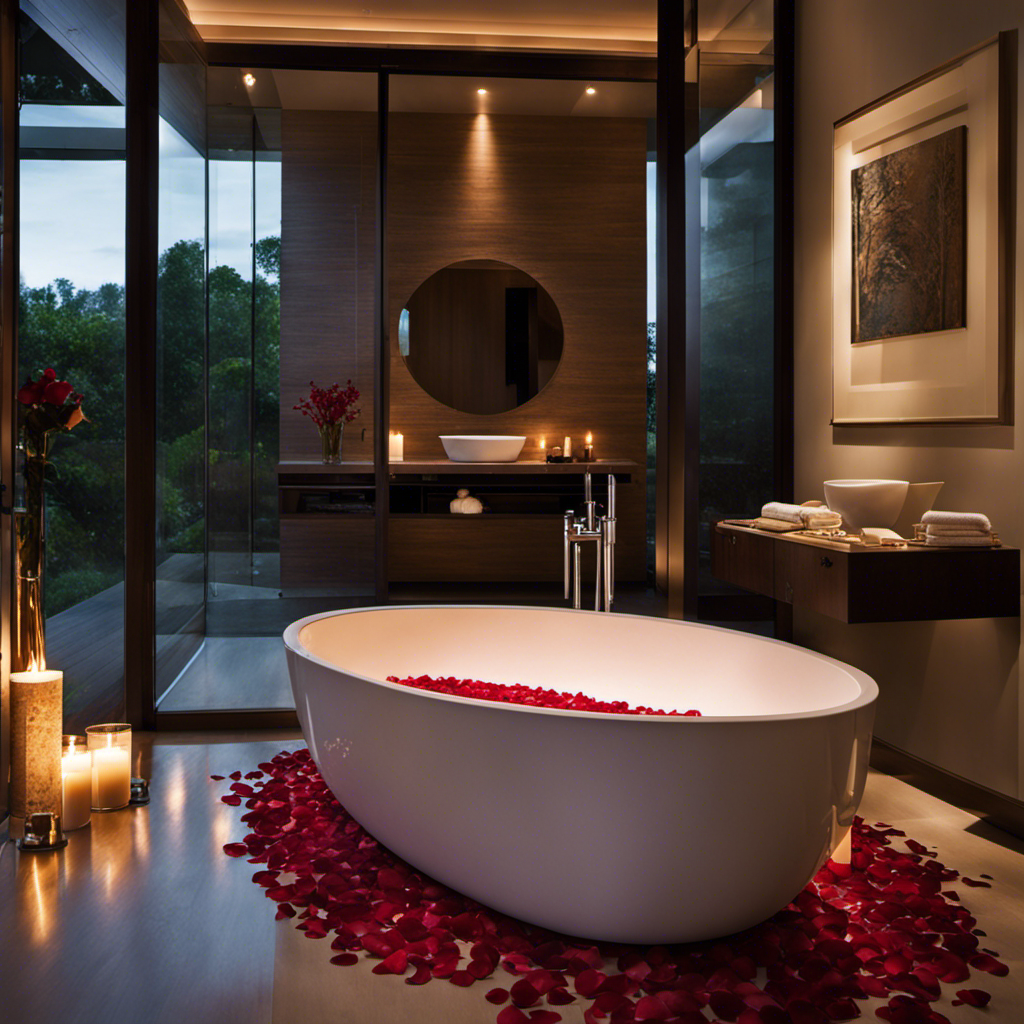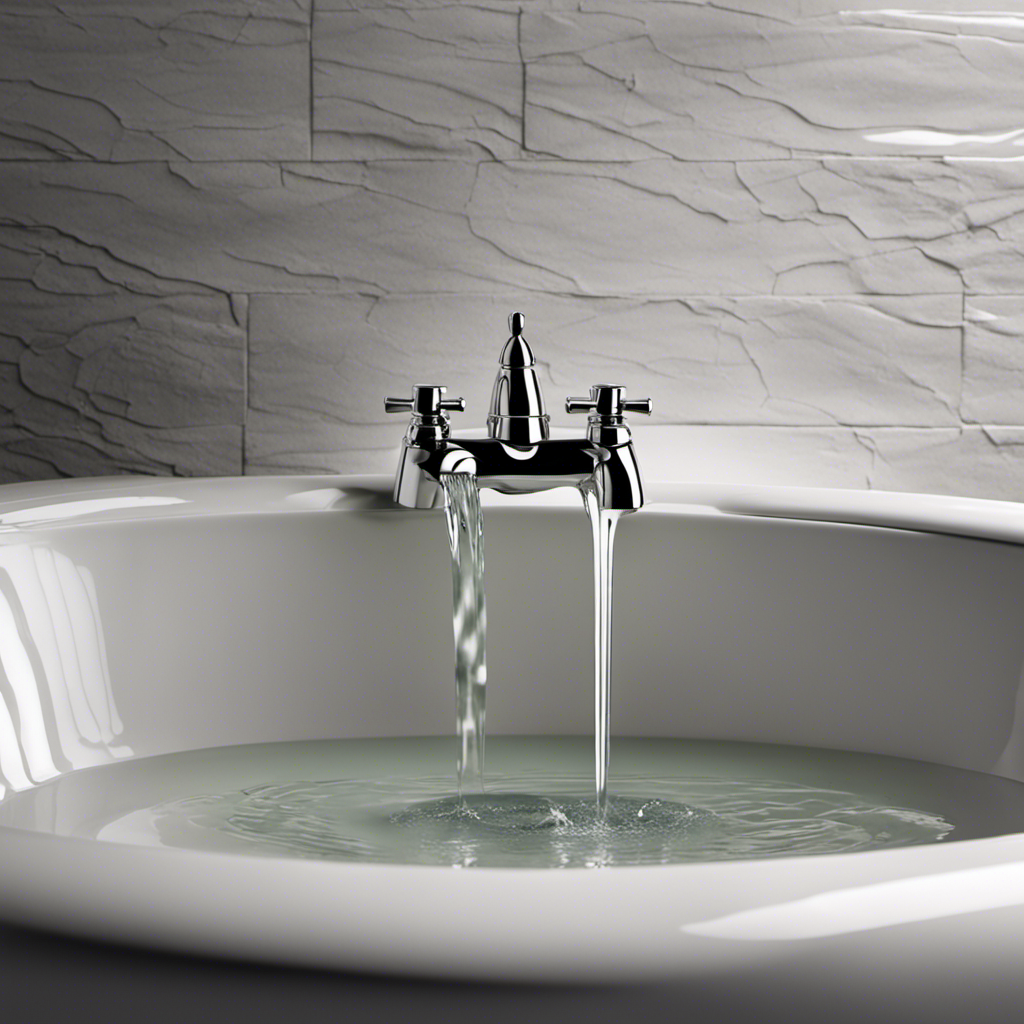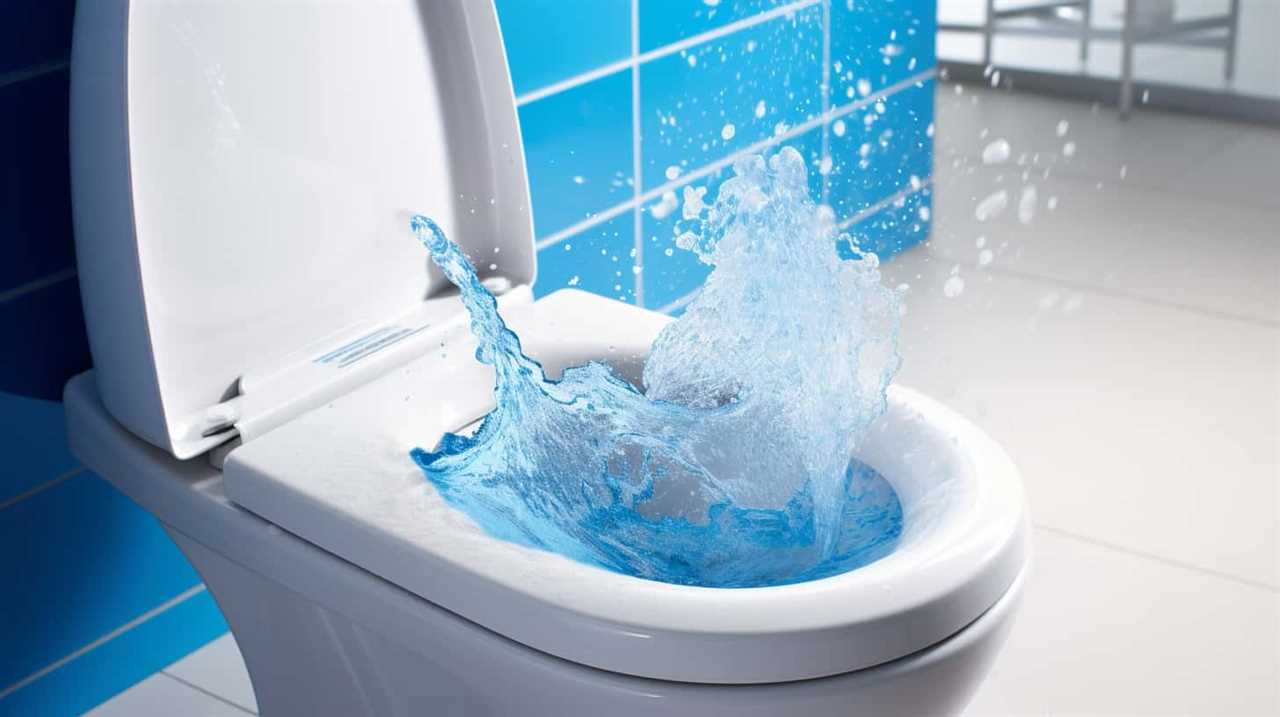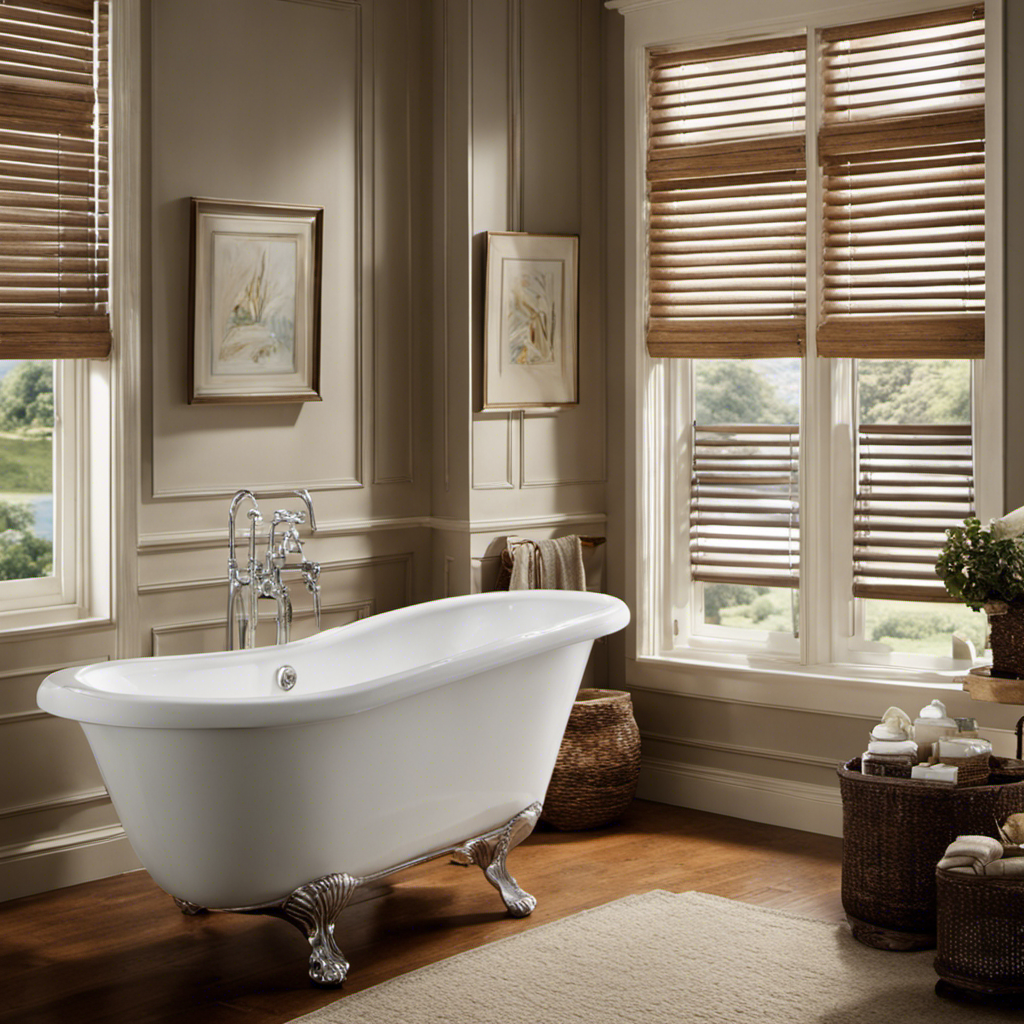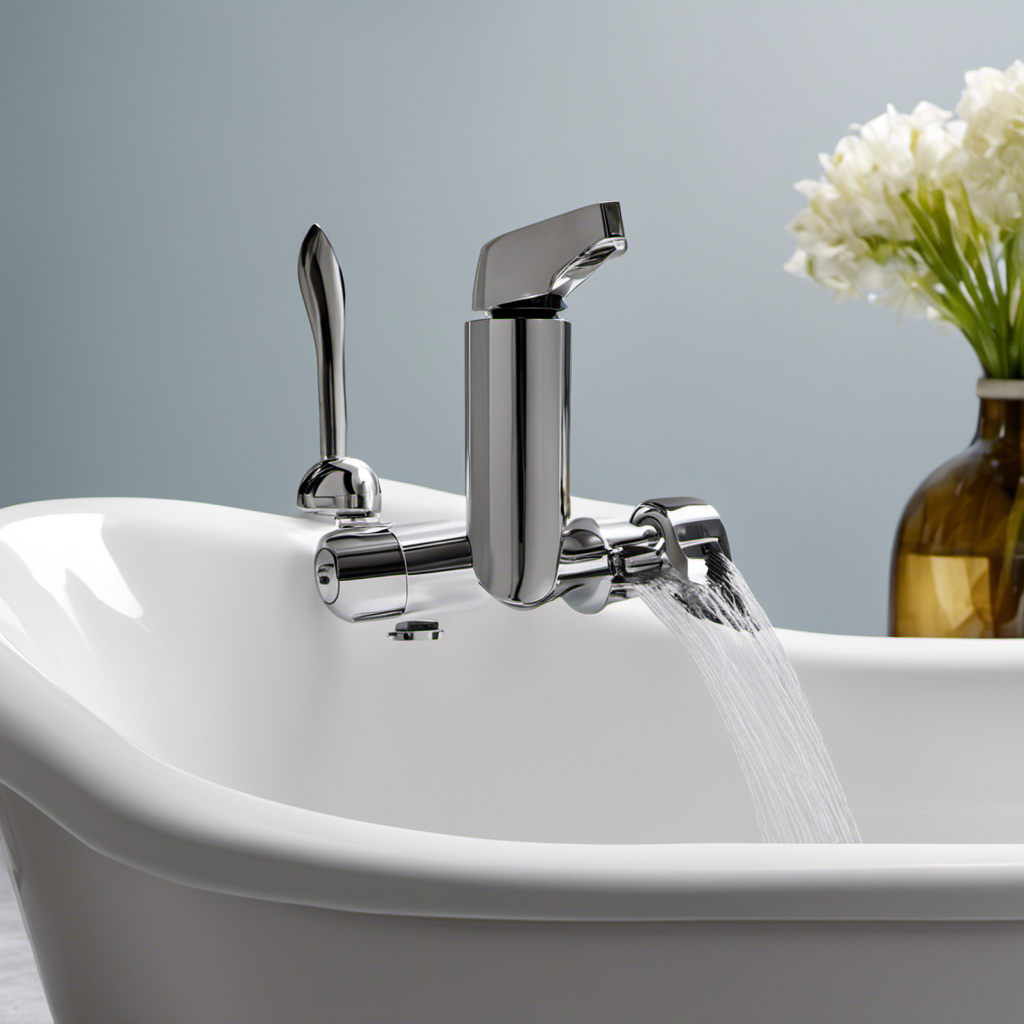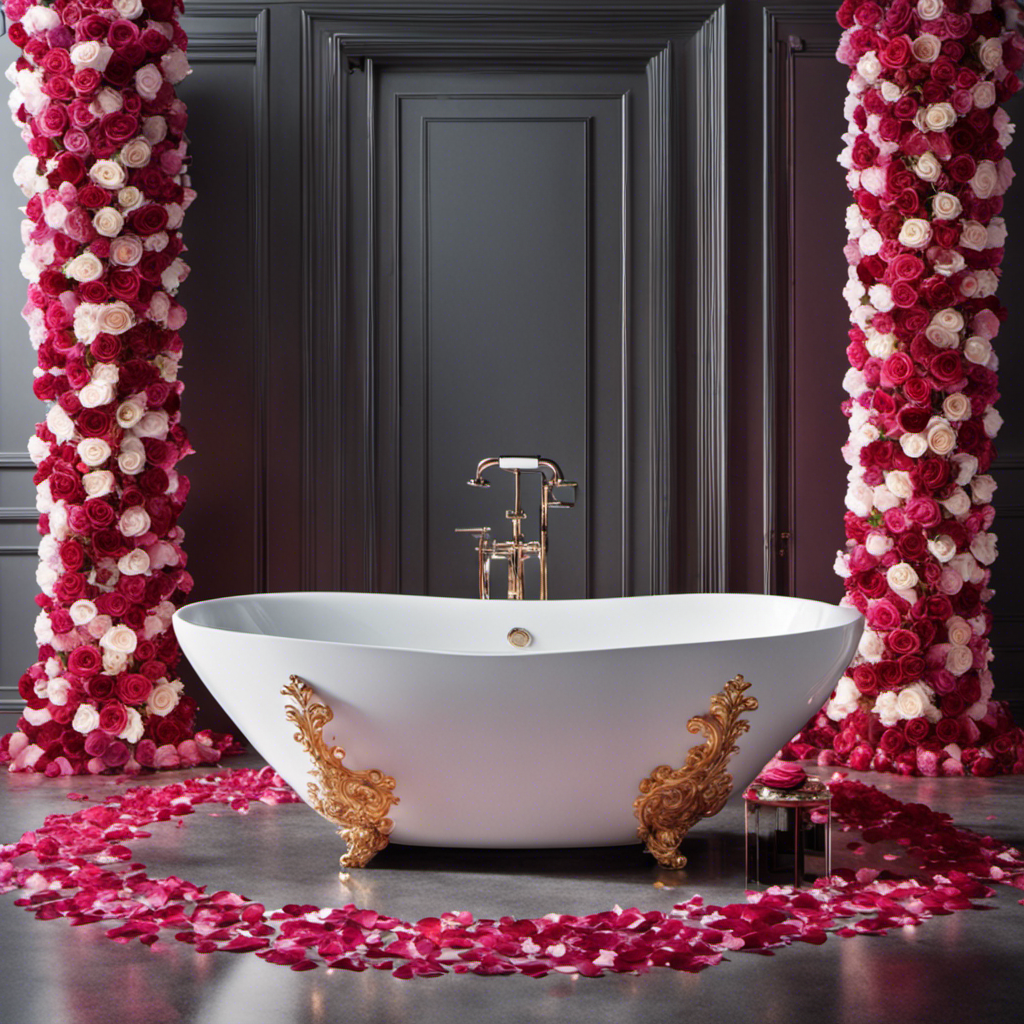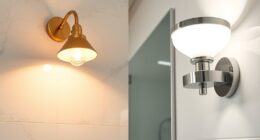As I step into the warm, soothing water of my bathtub after a long day, I can’t help but wonder – is a bathtub truly better than a shower?
In this article, we will explore the benefits of both options, considering factors such as space, maintenance, health, and personal preference.
By weighing the advantages and disadvantages, we hope to help you make an informed decision on whether a bathtub or shower is the better choice for you.
Key Takeaways
- Showers provide a relaxing and soothing experience, helping to ease muscle tension and promote relaxation.
- Showers are a space-saving option and ideal for small bathrooms or limited spaces.
- Showers are more water and energy-efficient compared to baths, contributing to a lower carbon footprint.
- Showers offer reduced risks of slips and falls, making them a safer option, especially for individuals with mobility issues or the elderly.
Benefits of a Bathtub
One of the benefits of having a bathtub is that it provides a relaxing and soothing experience. Taking a bath in a bathtub can be a great way to unwind after a long day or to destress. The warm water and the ability to fully submerge oneself can help to ease muscle tension and promote relaxation.
Not only does a bathtub provide physical relaxation, but it also offers therapeutic benefits. For example, adding bath salts or essential oils to the water can enhance the experience and provide additional benefits such as improved sleep, reduced anxiety, and improved skin health.
Overall, having a bathtub in your home can be a wonderful addition, allowing you to enjoy the many benefits of bathtub relaxation and therapeutic treatments.
Advantages of a Shower
If you’re looking for convenience and efficiency, taking a shower allows you to quickly get clean and start your day. With its sleek and functional design, a shower offers numerous advantages that make it a popular choice for many homeowners.
Here are some key reasons why showers are a great option:
-
Space-saving: Showers take up less space compared to bathtubs, making them ideal for small bathrooms or limited spaces.
-
Accessibility: Showers are easier to step into and out of, especially for individuals with mobility issues or the elderly.
-
Relaxation benefits: Showers can provide a rejuvenating and invigorating experience, thanks to options like rainfall showerheads, body jets, and steam features.
By considering these advantages, you can see why showers are a practical and enjoyable choice for your bathroom.
Now, let’s explore some considerations for small spaces.
Considerations for Small Spaces
When you have limited space in your bathroom, it’s important to consider practical solutions for maximizing the available area. Design considerations for small spaces include space-saving solutions that can help create a functional and efficient bathroom. One popular option is to choose a shower instead of a bathtub, as showers typically take up less space. Additionally, there are various design elements and features that can further optimize a small bathroom. For example, using a corner shower or installing a shower niche can help save space. Utilizing vertical storage solutions, such as shelves or cabinets, can also maximize the available space. By carefully planning and considering these design options, you can create a small bathroom that is both stylish and functional.
| Design Considerations | Space Saving Solutions | Practical Tips |
|---|---|---|
| Choose a shower instead of a bathtub | Install a corner shower | Utilize vertical storage |
| Opt for a shower niche for storage | Use a sliding shower door | Keep the color palette light |
| Use wall-mounted fixtures | Install a wall-mounted vanity | Incorporate mirrors for depth |
| Utilize recessed or floating shelves | Opt for a pedestal sink | Use a compact toilet |
| Consider a pocket door for the bathroom entrance | Install a towel warmer rack | Use foldable or collapsible furniture |
Maintenance and Cleaning Tips
Keeping your bathroom clean and well-maintained is essential for ensuring a hygienic and inviting space. When it comes to maintaining your bathtub or shower, there are a few cleaning techniques and product recommendations that can help you keep your bathroom sparkling.
Here are some tips to make your cleaning routine easier:
-
For bathtubs:
-
Use a mixture of baking soda and vinegar to remove tough stains.
-
Scrub the surface with a soft brush or sponge to prevent scratching.
-
For showers:
-
Use a shower cleaner with a mildew-resistant formula to prevent mold and mildew growth.
-
Invest in a squeegee to remove excess water from the walls and glass doors.
Product recommendations:
- Bathtub cleaner: Clorox Clean-Up with Bleach
- Shower cleaner: Tilex Mold and Mildew Remover
Health and Wellness Factors
When it comes to water temperature effects, understanding how it can impact our health and wellness is crucial.
The temperature of the water we use for bathing can have various effects on our body, from soothing sore muscles to improving circulation.
Additionally, taking the time to explore the skin cleansing benefits of different water temperatures can help us tailor our bathing routine to meet our specific needs.
Water Temperature Effects
The water temperature in the shower can greatly affect your comfort level. It’s important to find the right balance between hot and cold to ensure a pleasant bathing experience. Proper temperature control is key to enjoying the relaxation benefits of a shower.
Here are some factors to consider when it comes to water temperature:
-
Hot water:
-
Helps to relax muscles and relieve tension
-
Promotes improved blood circulation
-
Cold water:
-
Can invigorate and awaken the senses
-
May help to reduce inflammation and soothe sore muscles
By adjusting the water temperature to your preference, you can create a personalized shower experience that suits your needs. Remember to always test the temperature before stepping in to avoid any discomfort or burns.
Skin Cleansing Benefits
To achieve a deep cleansing of your skin, try using a gentle exfoliating scrub in the shower. Exfoliation is a crucial step in any skincare routine as it helps remove dead skin cells, unclog pores, and reveal a brighter complexion.
The shower provides the perfect environment for exfoliation as the warm water helps to soften the skin, making it easier for the scrub to work its magic. Not only does exfoliation have skincare benefits, but it also offers relaxation benefits.
The gentle massaging motion of the scrub stimulates blood circulation, promoting a sense of relaxation and rejuvenation. So, next time you hop in the shower, don’t forget to incorporate exfoliation into your routine for both its skincare and relaxation advantages.
Water Efficiency and Environmental Impact
You can save more water and reduce your environmental impact by choosing a shower over a bathtub. Showers are a more water-efficient option, allowing you to conserve this valuable resource.
Here are some reasons why showers are better for water conservation and reducing your carbon footprint:
-
Water Efficiency:
-
Showers typically use less water than baths, especially if you install a low-flow showerhead.
-
Taking shorter showers can further reduce water consumption.
-
Environmental Impact:
-
By using less water, showers help to conserve water resources, which are becoming increasingly scarce.
-
Showers also contribute to a lower carbon footprint because less energy is required to heat the water compared to filling a bathtub.
Personal Preference and Lifestyle Considerations
Consider your daily routine and how a shower aligns with your personal preference and lifestyle. When it comes to choosing between a bathtub and a shower, there are several factors to consider, including cost comparison and safety considerations. Let’s take a closer look at these aspects.
Cost comparison is an important consideration when deciding between a bathtub and a shower. Showers generally require less water and energy to operate, making them more cost-effective in the long run. Additionally, showers have shorter water heating times, resulting in lower energy consumption.
Safety considerations are also crucial. Showers offer a reduced risk of slips and falls compared to bathtubs, especially for individuals with mobility issues or the elderly. Installing safety features such as grab bars and non-slip mats further enhance the safety of showers.
Conclusion
In conclusion, both bathtubs and showers have their own unique benefits and advantages. It ultimately comes down to personal preference and lifestyle considerations.
However, it is interesting to note that on average, a 10-minute shower uses approximately 25 gallons of water, while a full bathtub requires about 70 gallons. This statistic highlights the significant difference in water usage between the two options, which may evoke an emotional response in those who are concerned about water conservation and the environment.
Ultimately, the choice between a bathtub and a shower should be based on individual needs and priorities.
